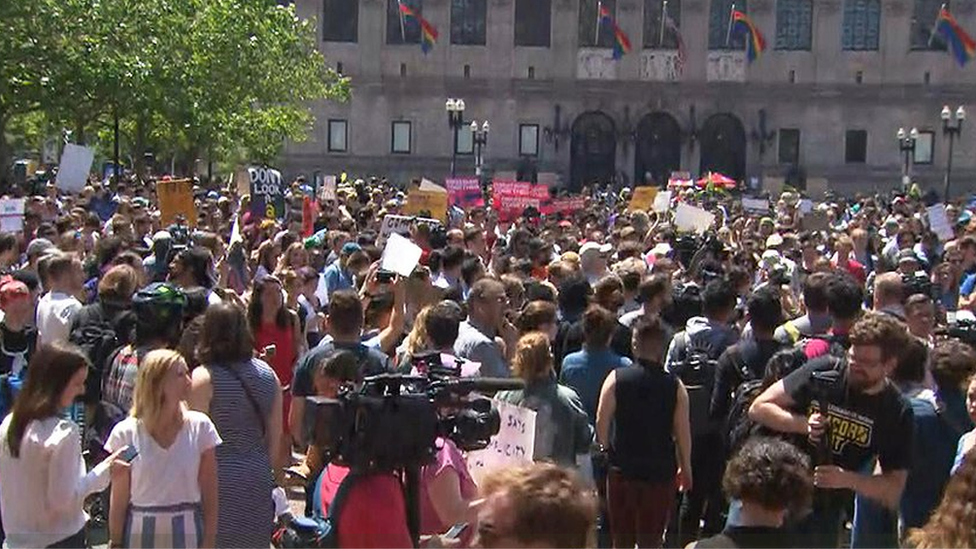US immigration: Drowning exposes risks of illegal crossing
- Published
Rio Grande drowning: "I knew it was the last time I would see my son"
El Salvador's government has warned people against risking their lives to reach the US after a man and his baby daughter drowned in the Rio Grande.
Photos of their bodies, found face down in shallow water with the 23-month-old girl's arm around her father's neck, have sparked condemnation.
"I hate it," US President Donald Trump said later of the photos.
This comes as the US and Mexico implement tougher policies to stem the flow of undocumented migrants.
Most of them are from Central America. At least six have died in recent days.
Warning: This article contains a distressing image
Many of the migrants say they are fleeing violence and poverty in Honduras, Guatemala and El Salvador, and plan to seek asylum in the US.
Critics of Mr Trump's tougher stance on immigration say his approach is driving migrants to take more dangerous routes.
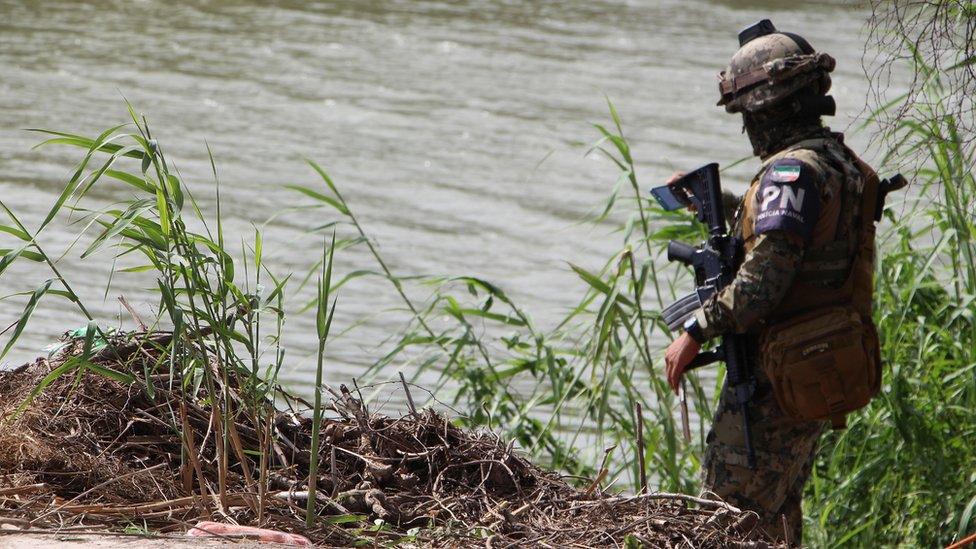
The bodies were found after a search by Mexican police along the Rio Grande
At least 283 migrants died on the US-Mexico border in 2018, according to US Border Patrol, but human rights activists say the number is likely to be higher.
Óscar Alberto Martínez Ramírez, 25, and his daughter Valeria drowned on Sunday while trying to cross from Matamoros, in the northern Mexican state of Tamaulipas, into Texas.
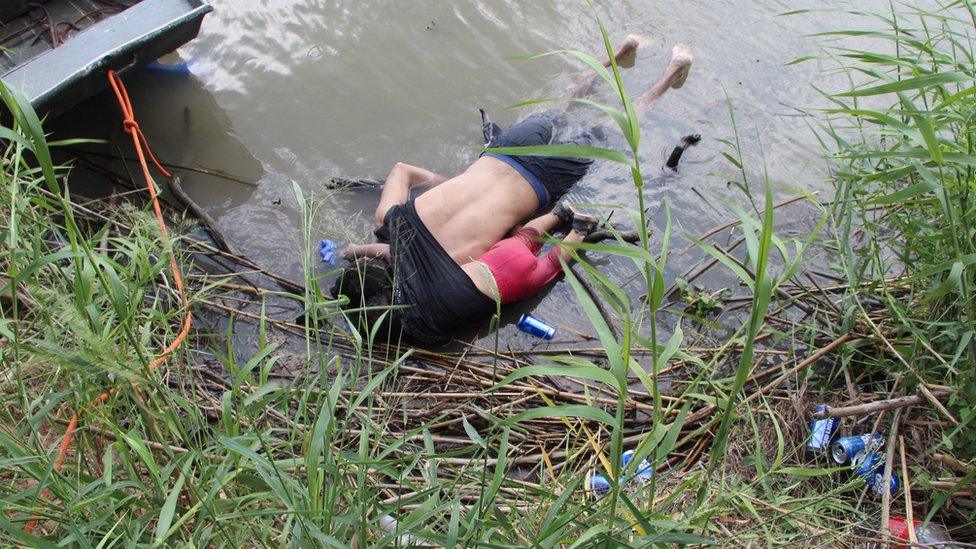
The father and daughter were reportedly swept away by the Rio Grande's dangerous current
The image, which surfaced on Monday, was captured by journalist Julia Le Duc and published by Mexican newspaper La Jornada.
"I am hoping [that] with this photo someone will do something and we don't have to continue taking photos of drowned migrants in the river," the journalist told the BBC.
The mother's account of the tragedy
Mr Martínez's wife and the daughter's mother, Tania Vanessa Ávalos, 21, said they had been living in Mexico for two months on a humanitarian visa, AP news agency reports.
Frustrated after being unable to present themselves to US officials and seek asylum, they had decided to cross the river.
Mr Martínez managed to get across with their daughter and set her down on the bank, then began returning for his wife, she told Mexican police.
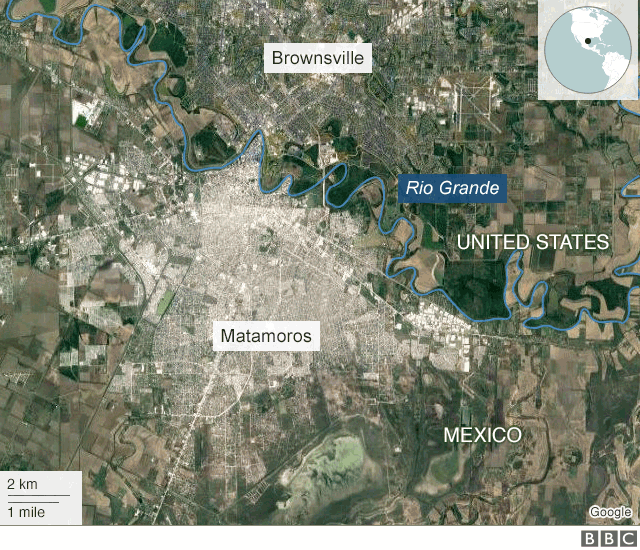

But alone on the riverbank, Valeria panicked and jumped in after her father. He made it back to her but both were swept away by the river's dangerous currents.
"I begged them not to go, but he wanted to scrape together money to build a home," Rosa Ramírez, Óscar's mother, told AP.
What has the reaction been?
El Salvador's Minister of Foreign Affairs, Alexandra Hill, has called on citizens to stop putting their lives at risk by trying to migrate illegally.
The government said it would cover the expenses needed to bring back the two bodies and would provide "necessary support" to their relatives.


Mexican President Andrés Manuel López Obrador also warned against making the perilous border journey, describing the deaths as "very regrettable".
"People are losing their lives, in the desert or crossing the Rio Grande, we've always condemned it and we don't want it."
In a statement, the Vatican said Pope Francis had seen the pictures, adding: "The Pope is profoundly saddened by their death, and is praying for them and for all migrants who have lost their lives while seeking to flee war and misery."
What did President Trump say?
After seeing the traumatic picture, he told reporters later on Thursday: "I hate it."
"That father... was probably a wonderful guy," he said.
Trump: "If we had the right laws those people wouldn't be trying"
"A very very dangerous journey. And by the way many other things happened. Women being raped; women being raped in numbers nobody believed."
The US president added that the refusal by the opposition Democrats to back his border policies were to blame for deaths of illegal migrants.
"Well, that's what I've been saying if they fixed the laws you wouldn't have this," he said.
The picture has also drawn comparisons to the photo of young Syrian boy Alan Kurdi, who became a symbol of the human cost of the war in Syria.
What happens if Mexico doesn't stem the migrant flow?
Earlier this month, Mexico reached a deal with the Trump administration to try to stem the flow of undocumented migrants travelling to the US. Since then, deportations and detentions of undocumented migrants have reportedly increased.
Meanwhile, Democrats in the US House of Representatives approved $4.5bn (£3.5bn) in humanitarian aid for the US-Mexico border. The bill, however, faces a tough path through the Republican-controlled Senate.
In February, Mr Trump declared an emergency on the country's southern border, saying it was necessary to tackle what he said was a crisis there.
- Published30 May 2019
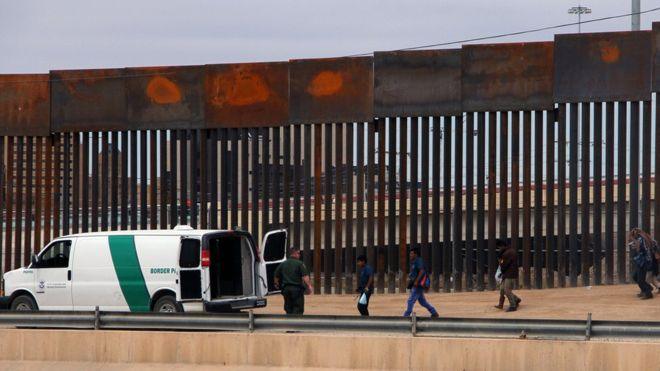
- Published26 June 2019
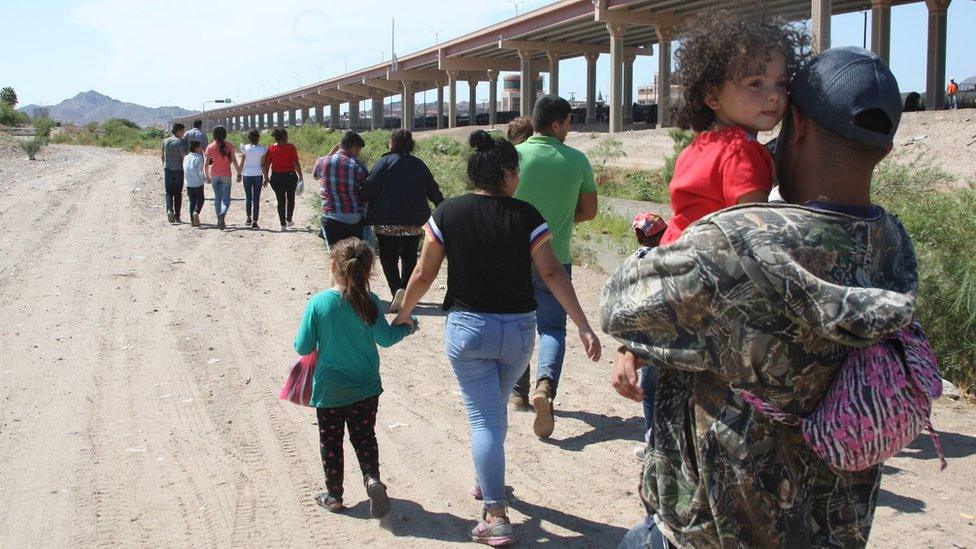
- Published26 June 2019
